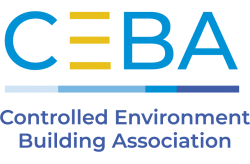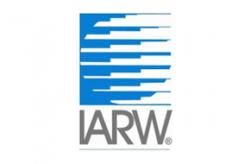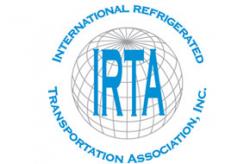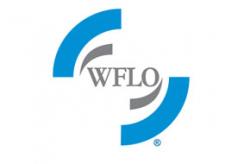Developing the Global Cold Chain
Fighting Food Loss and Waste.
Although more than enough food is produced to feed everyone on the planet, much of it is lost or wasted before reaching a consumer. The process by which perishable food is maintained from the 'farm gate to food plate' is the cold chain. Many countries around the world face challenges in securing access to safe and reliable food due to lack of understanding, knowledge and investment in cold chain best practices and infrastructure.
GCCA members play a role in developing the cold chain.
GCCA is dedicated to the proper handling and storage of perishable products and the development of systems and best practices for the safe, efficient, and reliable movement of food to the people of the world. Through our nonprofit core partner, the World Food Logistics Organization (WFLO), GCCA supports international cold chain development through partnerships with donors, NGOs, governments, educational institutions, local associations, and private sector businesses to promote business to business knowledge through training, education, and research.
Since 2002, WFLO has completed more than 110 projects in over 65 countries.
Learn more about what we do and where we work.
ACTIVE PROJECTS:
GCCA is committed to building and strengthening the temperature-controlled supply chain around the world. Here is a snapshot of the latest projects the International Development team is working on:
Bangladesh Trade Facilitation Project, 2020 – 2025
Partnered with Venture37 and LixCap
The World Food Logistics Organization was awarded a five-year subcontract supporting the Bangladesh Trade Facilitation (BTF) project. This is a USDA-funded project focused on expanding trade in agricultural products by reducing the cost of trade; decreasing the release time of imported agricultural goods; and increasing agricultural productivity by improving processes through increased transparency, streamlining, and automation.
WFLO supported the comprehensive trade assessment by performing a cold storage ecosystem assessment. Looking forward, WFLO will advance the legal framework for warehouse operations, streamline warehouse processes, engage the private sector on cold storage infrastructure, develop material to incentivize and attract investors and operators, identify and support potential investors and operators, offer training, and build capacity of certification bodies for food safety management.
Benin Projet d’Appui à la Compétitivité des Filières agricoles et à la Diversification des exportations (PACOFIDE), 2022
Partnered with LixCap
WFLO signed a contract with GCCA member LixCap to provide technical support to ensure the safe and commercially viable operation of temperature-controlled facilities in Benin. GCCA/WFLO was requested by the government of Benin to develop preliminary designs for the project. The client PACOFIDE will launch a tender process for the conditioning facility in the Grand Nokoué wholesale market. This tender process directly follows the successful cold chain rapid response and strategy developed by the consortium.
Burundi Projet de Développement Local pour l’Emploi (PDLE), 2022
Partnered with LixCap
WFLO signed a contract with GCCA member LixCap to provide technical support to ensure the safe and commercially viable operation of temperature-controlled facilities in Burundi. The team is focused on delivering a concept design for state-funded cold chain facilities and design and tender documentation for the facilities. CEBA member CT-Technologies was awarded the contract to build the cold storage facility in the airport of Bujumbura, Burundi, in December 2021.
Cambodia, Thailand, and Vietnam Southeast Asia Emerging Markets Program, 2019 – 2021
WFLO is conducting a comprehensive baseline assessment of the cold chain situation in Vietnam, Thailand, and Cambodia. This activity is a part of the USDA-funded Emerging Markets Program (EMP), which helps U.S. organizations promote exports of U.S. agricultural products to countries that have or are developing market-oriented economies and that have the potential to be viable commercial markets.Several GCCA members and staff have been able to visit the region to perform site studies and tours and collect data. This data will be compiled and help WFLO create recommendations for cold chain development.
Dominican Republic Trade Safe Project, 2021 – 2025
Partnered with International Executive Service Corps (IESC)
WFLO is supporting USDA’s new Food for Progress “Trade Safe (TraSa) Project” in the Dominican Republic. This is a follow-on to the successful Exporting Quality project, also funded by the USDA, which WFLO supported from 2015 to 2020. This project expands the cold chain training and consultations from packhouses and airports to improved efficiencies via education and investment for a broader group of cold chain stakeholders. WFLO will review relevant cold chain legislation in the country as well as plan study tours to demonstrate cold chain best practices at land, air, and seaports in the U.S. and Central America.
Egypt Rural Agribusiness Strengthening Project, 2019 – 2023
Partnered with Abt Associates Inc.
The Feed the Future Egypt Rural Agribusiness Strengthening (ERAS) Project employs a buyer-led, systems-strengthening approach to improve the competitiveness of horticulture producers and related downstream businesses and food processors by developing their abilities to respond to domestic and international buyer demand. WFLO contributes to innovative initiatives that address cold chain and postharvest gaps within the broader market system and supports the development of a Cold Chain Center of Excellence (CCCOE) program. WFLO also helps organize periodic Cold Chain Expos and B2B programs, provides capacity building, and resolves challenges in the cold chain area.
Georgia Agriculture Project, 2018 – 2023
Partnered with Cultivating New Frontiers in Agriculture
WFLO has partnered with Cultivating New Frontiers in Agriculture (CNFA) to support the USAID Agriculture Program in selecting appropriate cold chain technologies for a given product, enterprise, and operating environment. Generator-operated or solar mobile pre-coolers, which bring the cold chain to the harvest site, can dramatically reduce post-harvest losses and improve quality and are particularly valuable in the context of Georgia’s mountainous terrain and its fragmented production parcels. WFLO will support a market study, investment awareness seminars, and association development, which is critical for sustainability.
Ghana Cold Chain Network, 2022 – 2023
Partnered with LixCap, Sory @ Law, West African Coastal and Marine Engineering Services (WACAMS), and Maverick Research and Consultant
This feasibility study, funded by the U.S. Trade and Development Agency, will define the opportunity to establish a temperature-controlled logistics facilities network throughout the country of Ghana. The study will also include a detailed market assessment of existing cold chain services. WFLO will undertake the study with the consortium of local and international experts. The project will facilitate cold chain infrastructure for GCCA member FreezeLink.
Morocco Cold Chain Analysis and Training, 2021 – 2022
Partnered with USA Poultry and Egg Export Council (USAPEEC)
WFLO is partnered with the USA Poultry and Egg Export Council (USAPEEC) for a USDA-funded project in Morocco. WFLO prepared a cold chain skills gap analysis and designed training and education programs to minimize the identified gaps in the cold chain. The training programs will be completed in 2022.
For questions about international development opportunities, please contact Amanda Brondy via email or at +1 703 373 4300.



